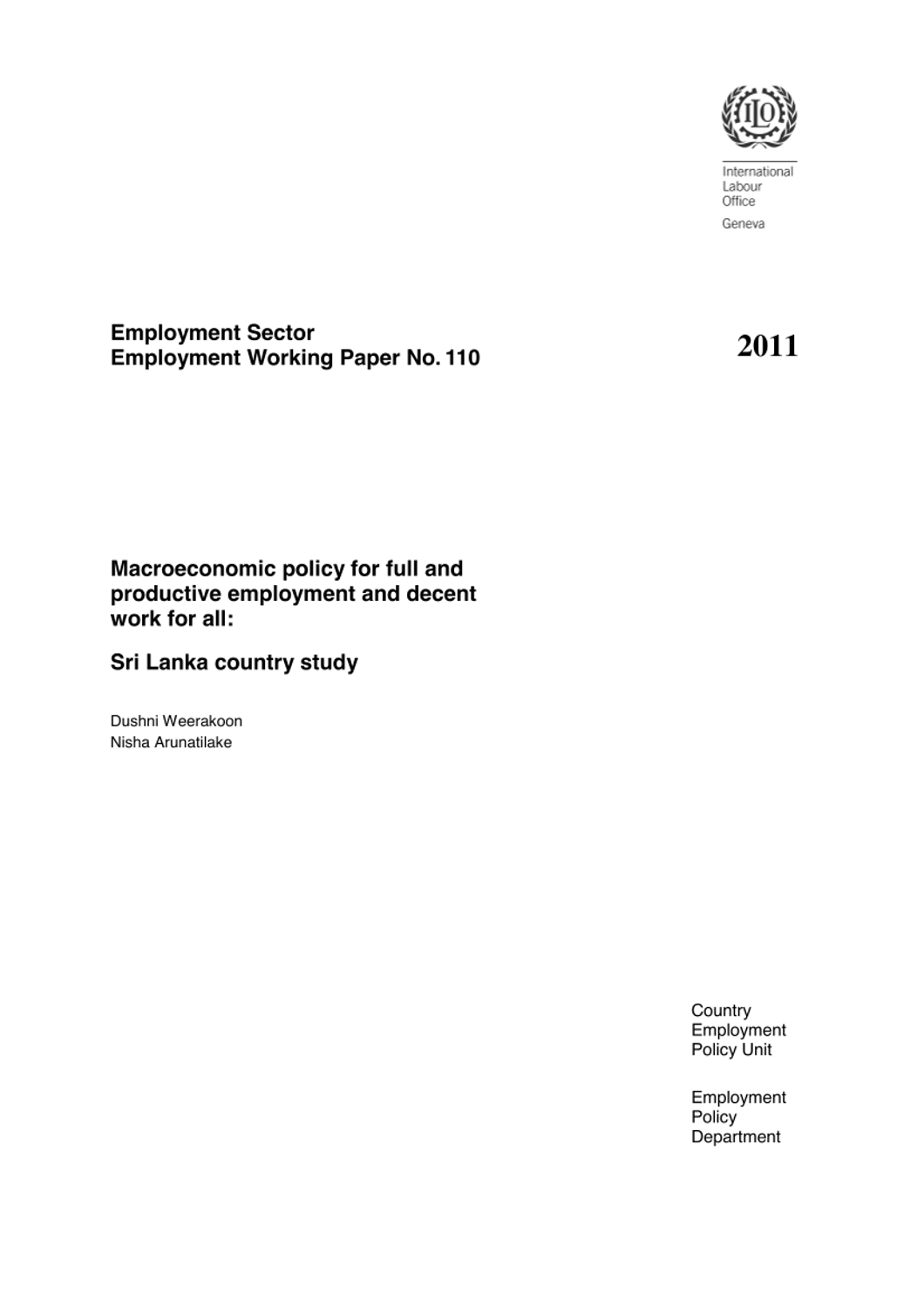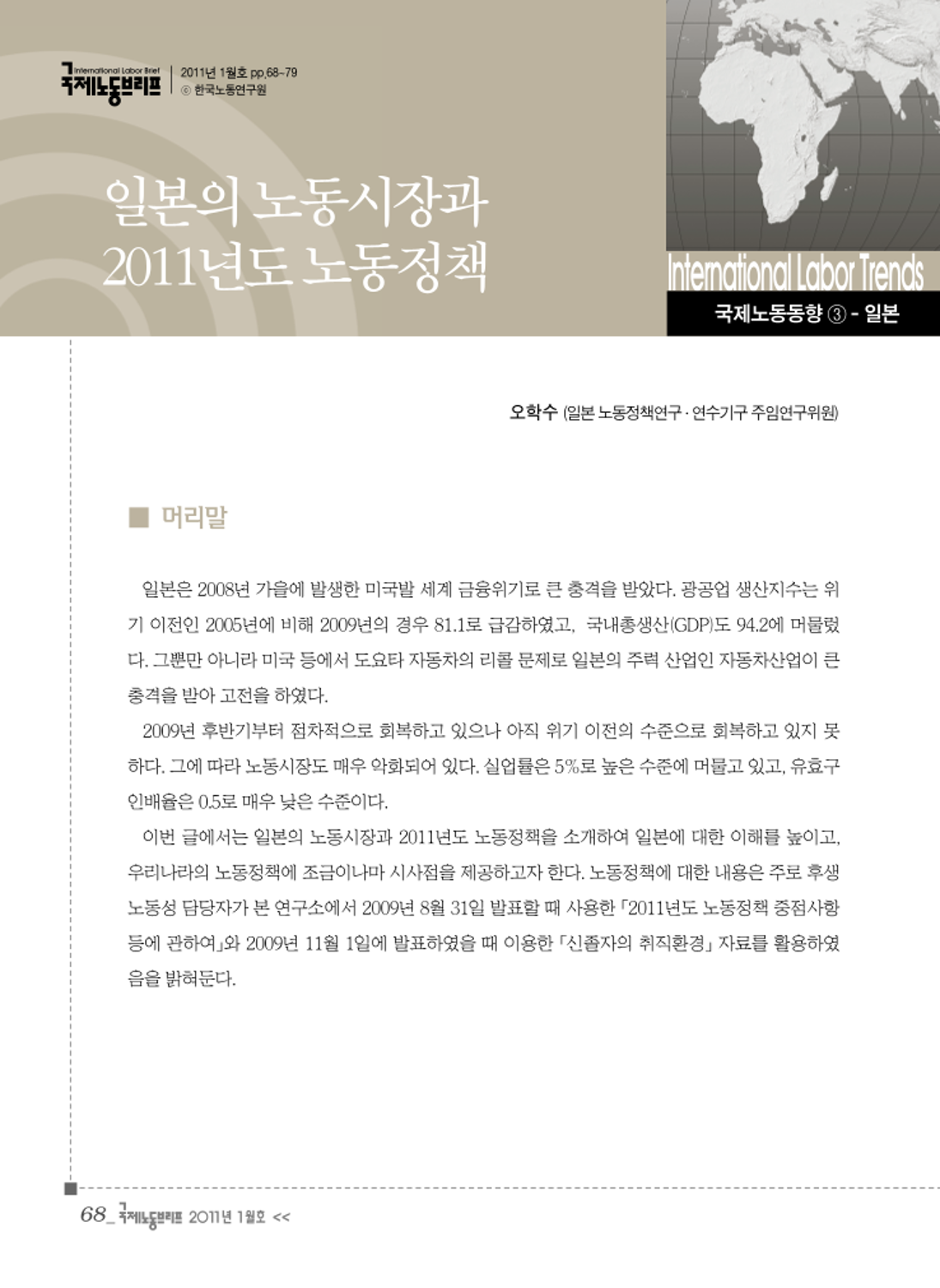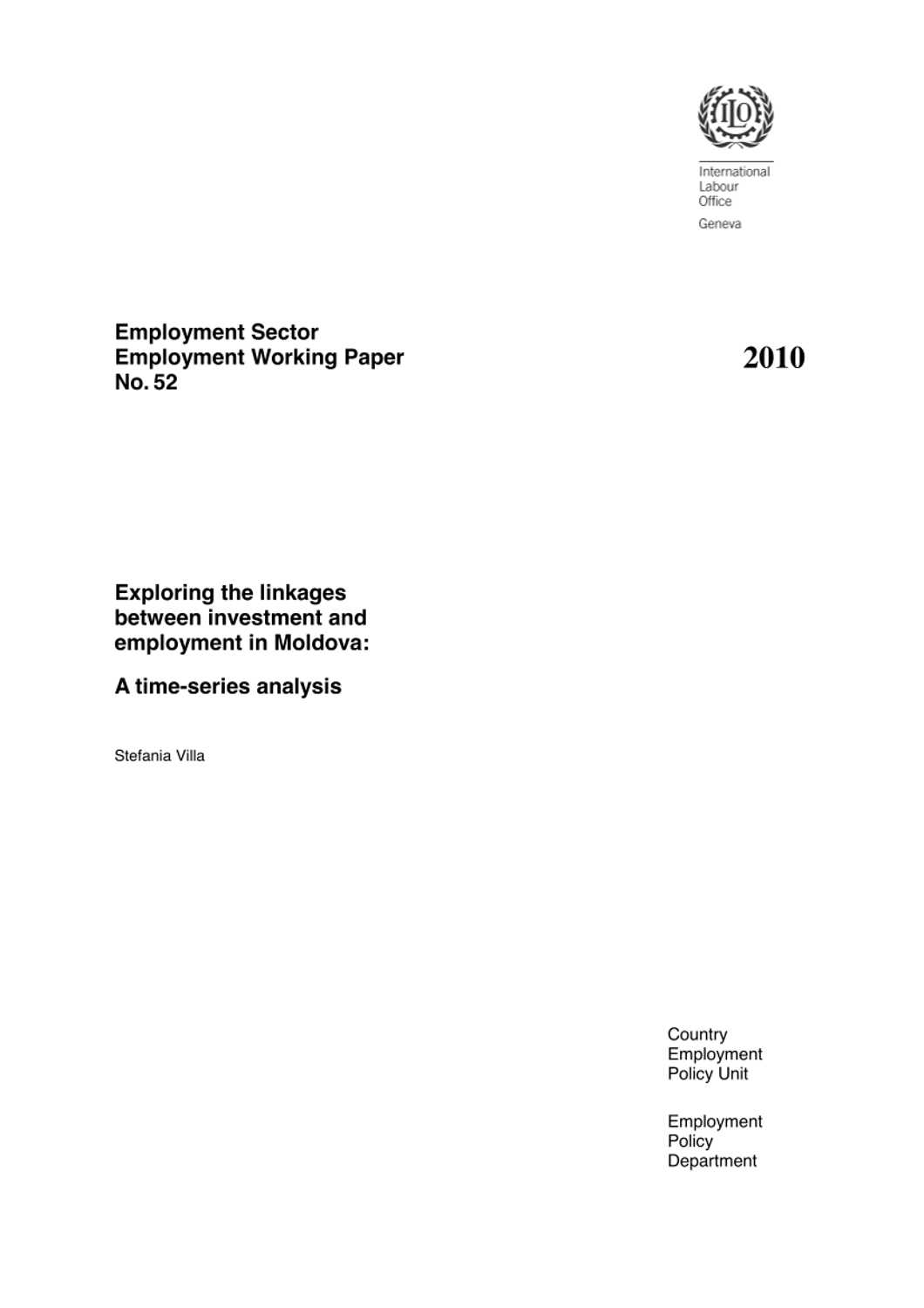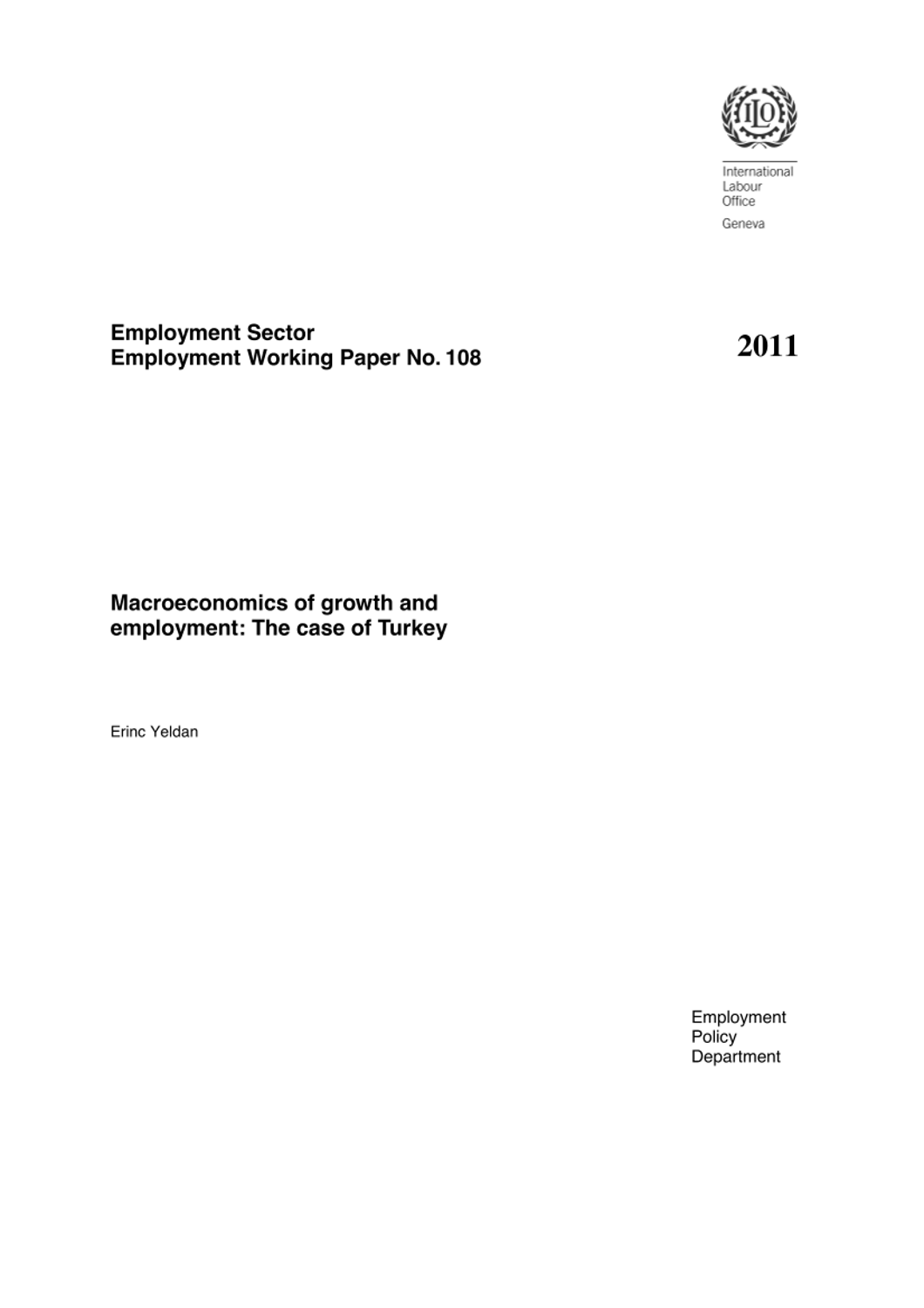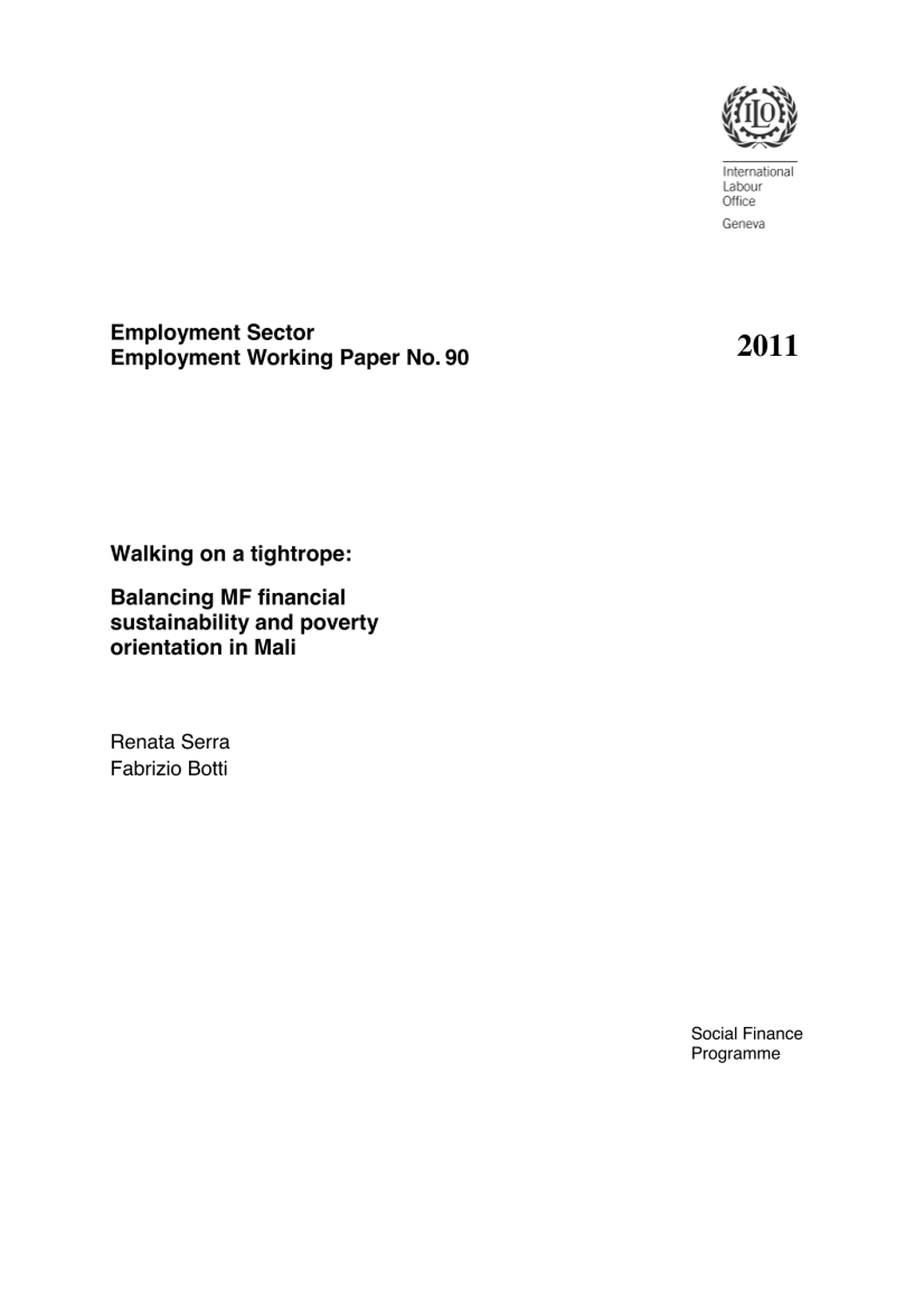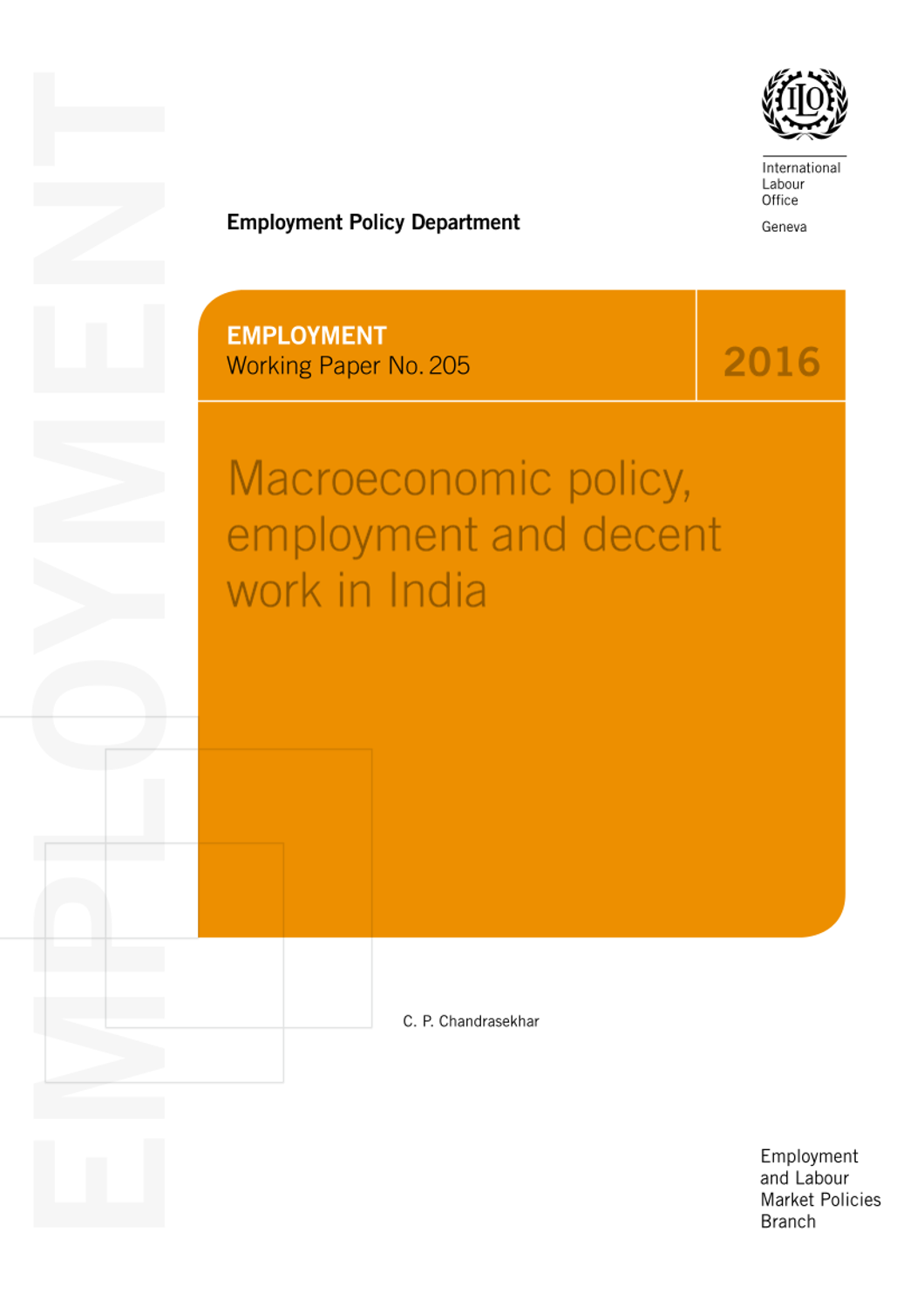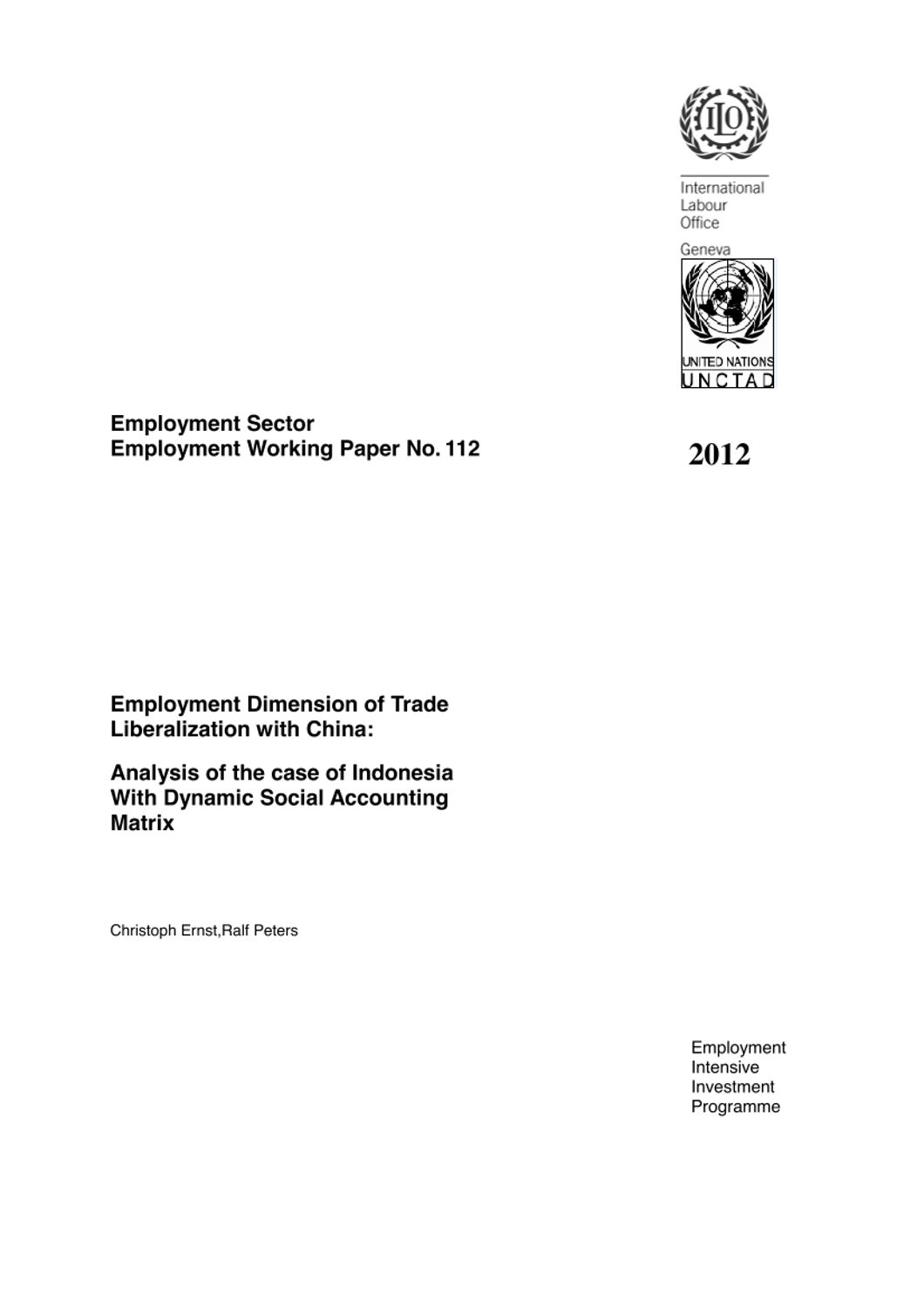연구보고서Employment Working Paper 110
Macroeconomic policy for full and productive employment and decent work for all: Sri Lanka country study
- 청구기호
- EWP 110
- 발행사항
- Geneva : ILO, 2011
- 형태사항
- 75 p. :. PDF file ;. 600 KB
소장정보
| 위치 | 등록번호 | 청구기호 / 출력 | 상태 | 반납예정일 |
|---|---|---|---|---|
이용 가능 (1) | ||||
| E0001682 | 대출가능 | - | ||
이용 가능 (1)
- 등록번호
- E0001682
- 상태/반납예정일
- 대출가능
- -
- 위치/청구기호(출력)
책 소개
Sri Lanka has witnessed a considerable reduction of its unemployment rate over the past decade. Annual average GDP growth in the range of 5 per cent has helped to generate employment. However, employment growth is explained more by growth in public sector employment and informal types of employment than in formal private sector employment.
Furthermore, unemployment remains high for females, for youth and for the educated.
Such outcome can be attributed to insufficient long term investment by the private sector in the context characterized by volatility and unpredictability in the macroeconomic
fundamentals, compounded by socio-political flux of a long drawn armed separatist conflict in the country. In an environment characterized by uncertainty and volatility, contractual or informal employment arrangements may be seen to provide the necessary flexibility to adjust to a changing economic environment. Yet, given the missing unemployment insurance system and the lower likelihood of such workers to be covered by the social safety nets, contractual or informal employment arrangements are not conducive towards achieving Sri Lanka’s development objectives. To retain macroeconomic policy manoeuvrability in order to appropriately respond to its development priorities and to avoid the need for IMF conditionality-driven policy setting in future, Sri Lanka needs to ensure prudent macroeconomic management. In 2011, with a fiscal deficit target of 7 per cent, a moderate inflation averaging 6-7 per cent, and a fairly healthy external reserve position, Sri Lanka does have the opportunity to gear its macroeconomic policies towards productive employment, by adjusting and releasing resources for capital investment in infrastructure and spending on key sectors such as health and education.

